15 Practical Tips to Help Your Puppy Stop Biting
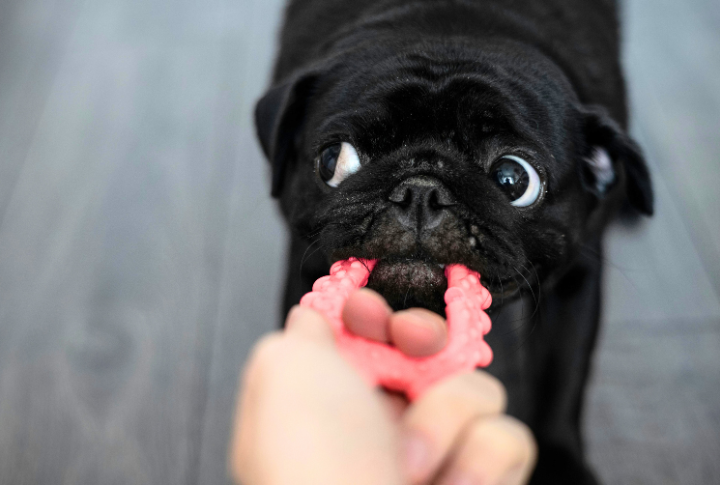
Puppy teeth surely hurt. Your adorable ball of fluff is suddenly a tiny piranha, chomping on everything in sight. But don’t worry—this is normal and won’t last forever. Here are 15 practical tips to help you survive the bitey phase and teach your pup how to stop biting away!
The “Whys”
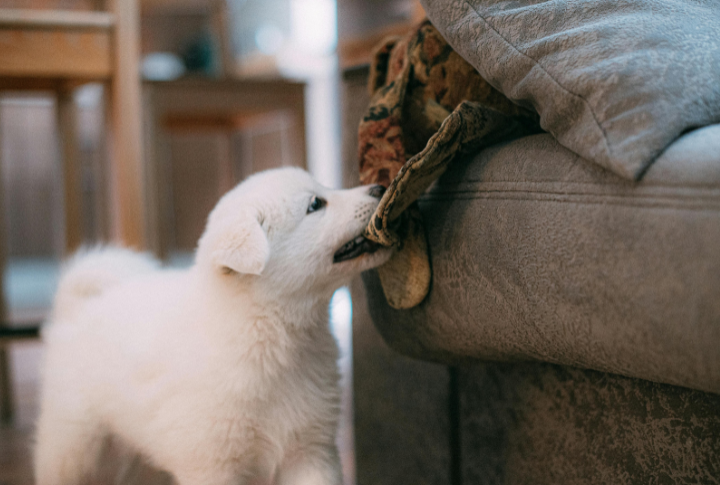
Puppies bite for exploration, teething relief, and play. Recognizing these motivations is essential to effectively addressing the root cause. Biting peaks around 12-16 weeks when adult teeth emerge, causing sore gums. This developmental stage is normal, not naughty.
Redirect With Appropriate Toys
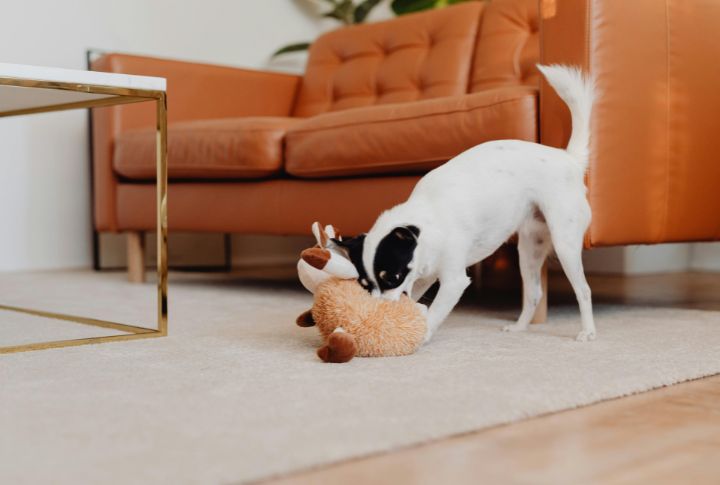
Stock up on a variety of puppy-safe chew toys with different textures. When those sharp teeth head for your fingers, swiftly offer a toy instead. This teaches what’s acceptable to chew while satisfying their natural urge. Remember to praise your pup for engaging with the toy!
Use Positive Reinforcement

Award it every time you catch your puppy being good! When they play gently or chew appropriate items, immediately reward them with treats and enthusiastic praise. Such a positive association with desired behaviors makes your pup more likely to repeat them. Be consistent and quick with rewards.
Implement Brief Time-outs
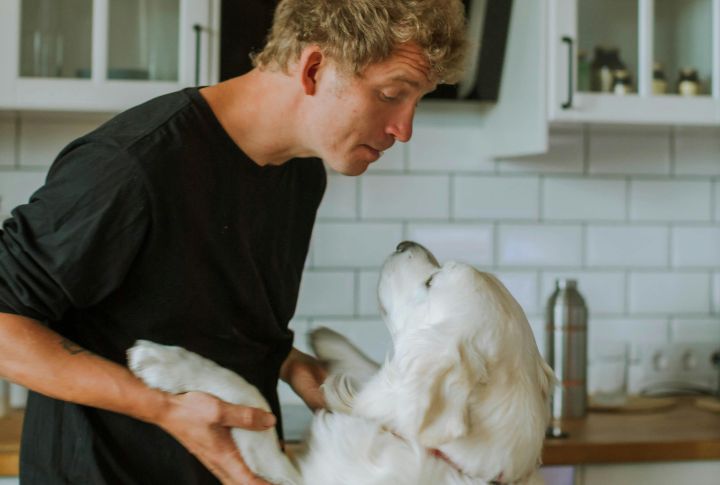
When playtime gets too rough, stop the fun at once. Calmly say “Ouch!” or “No bite” and withdraw attention for 30 seconds. This brief social isolation will help your pup learn that biting leads to less enjoyment. Avoid scolding or physical punishment, which might worsen biting behavior.
Teach Bite Inhibition
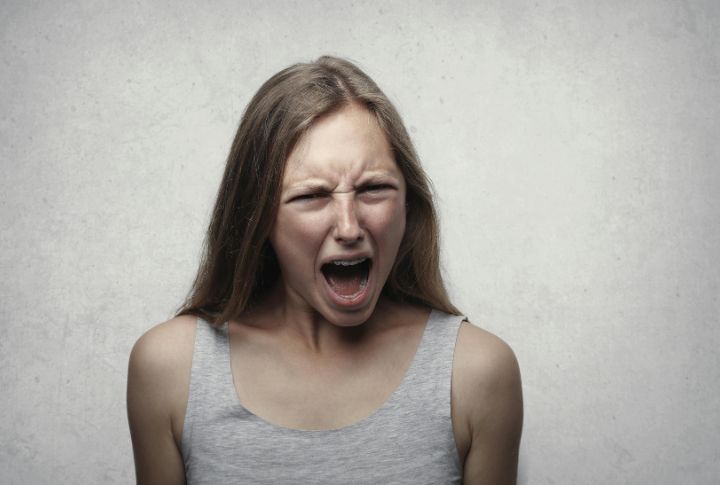
Emit a high-pitched yelp when your puppy bites too hard. This startles them and teaches gentleness. Gradually lower your pain threshold to shape softer bites over time. If yelping doesn’t work, try a firm “Ouch!” followed by briefly stopping play.
Provide Plenty Of Exercise
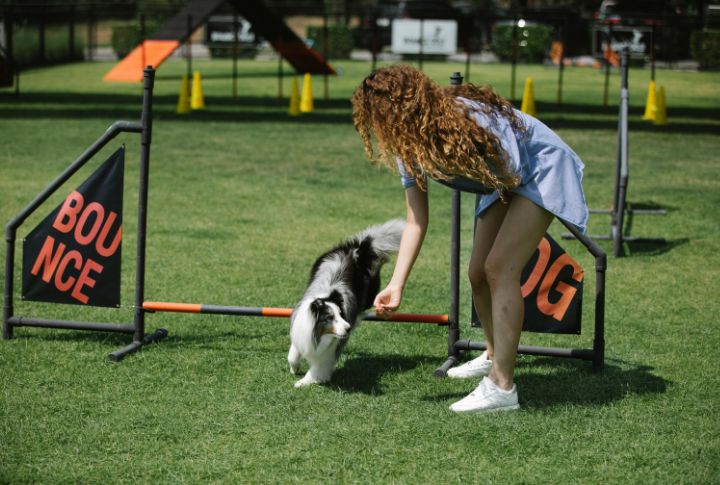
When your canine is tired, it might start gawing on items, or you! Ensure your furball gets enough physical and mental stimulation throughout the day. Regular walks, playtime, and training sessions help burn excess energy. If you can give your puppy about at least 15 minutes of movements daily, that will work.
Offer Frozen Treats
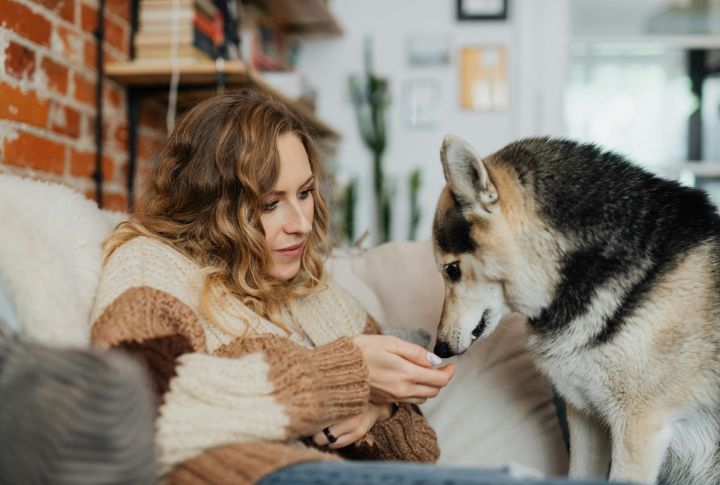
Soothe teething discomfort with frozen goodies. Stuff a Kong toy with puppy-safe treats like mashed banana or yogurt, then freeze. This provides long-lasting relief for sore gums and keeps your pup occupied, reducing the urge to chomp on your belongings.
Puppy Socialization Classes
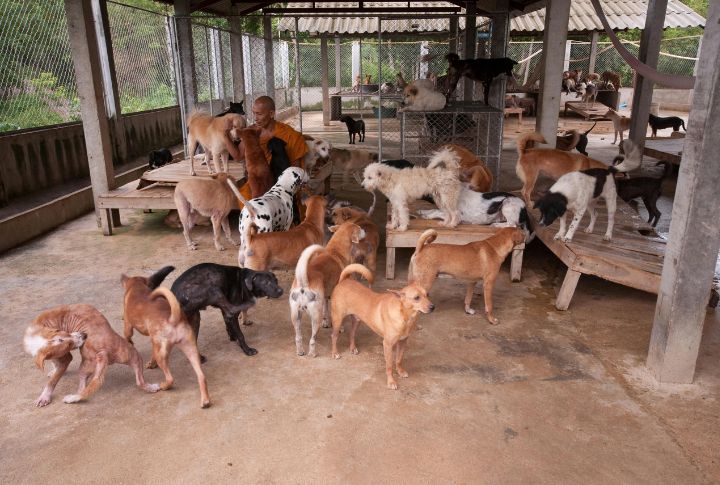
Enroll in puppy classes to provide a controlled environment for learning appropriate play behavior. Puppies practice bite inhibition with peers and develop important social skills. Ensure all participants are actually puppies to prevent overwhelming experiences.
Avoid Harsh Corrections
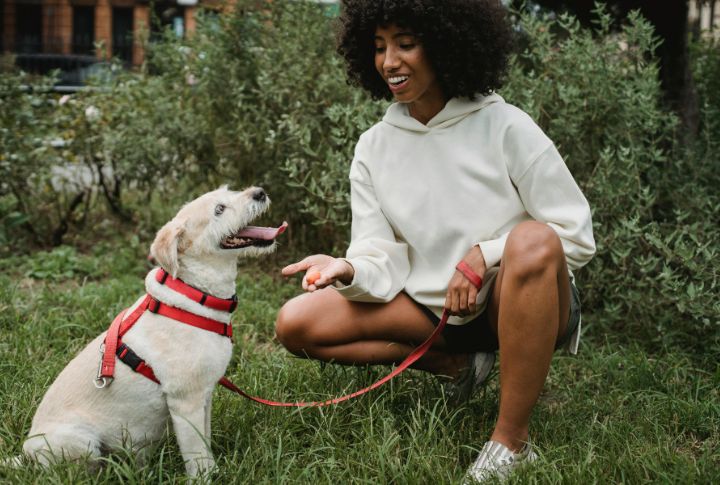
Never use physical punishment or harsh verbal reprimands to stop your dog from biting. These tactics can lead to fear and anxiety and potentially escalate the biting behavior. Instead, focus on redirecting and positive reinforcement. Remember, patience and consistency yield the best results.
Be consistent with commands
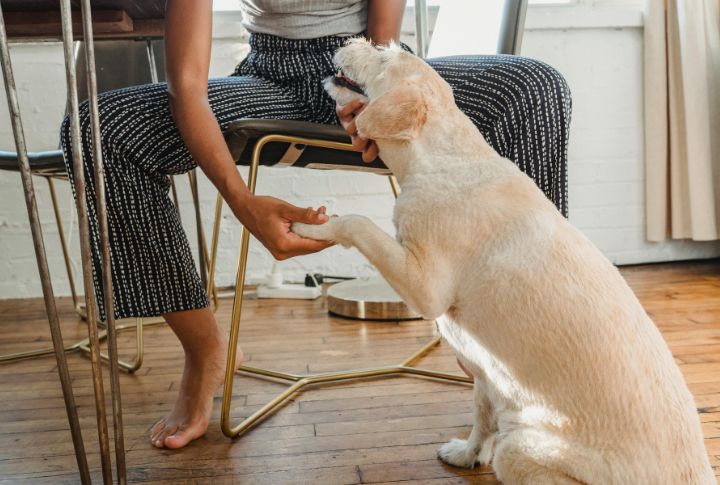
Choose a specific command, like “No bite” or “Gentle,” and use it consistently. Keeping the same tone and word sequence every time will help them understand what you’re asking or why you are stopping them. Pair the command with redirection to an appropriate chew toy.
Provide mental stimulation
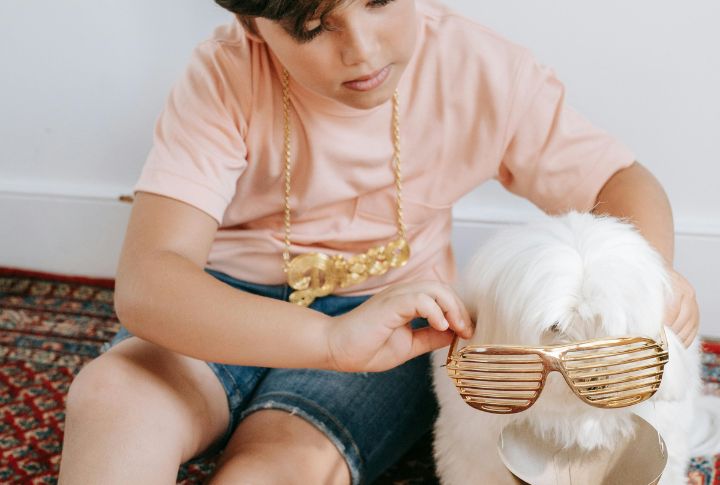
Puzzle toys, snuffle mats, and training sessions will definitely help dogs keep their minds engaged. Bored puppies are more likely to engage in destructive chewing and biting. You can conceal goodies all over your home that your dog will locate as they play. Rotate toys to maintain novelty.
Manage the environment
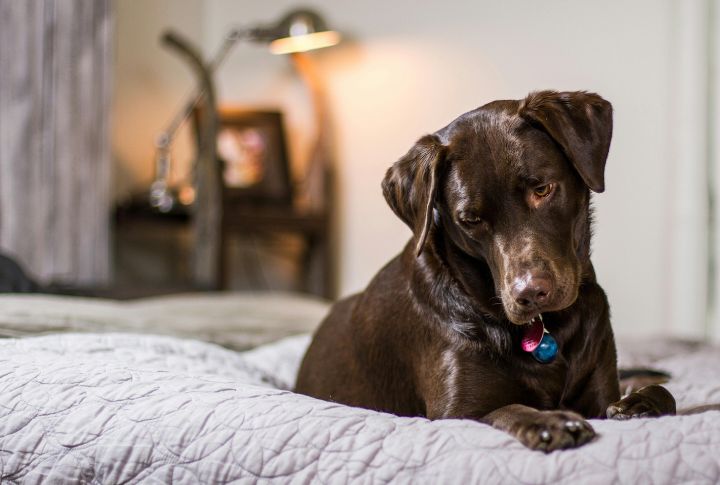
Puppy-proof your space by removing tempting objects within reach. This will set your pup up for success and reduce opportunities for inappropriate chewing. Use baby gates to restrict access to specific areas and provide a designated puppy zone with appropriate toys.
Encourage nap time
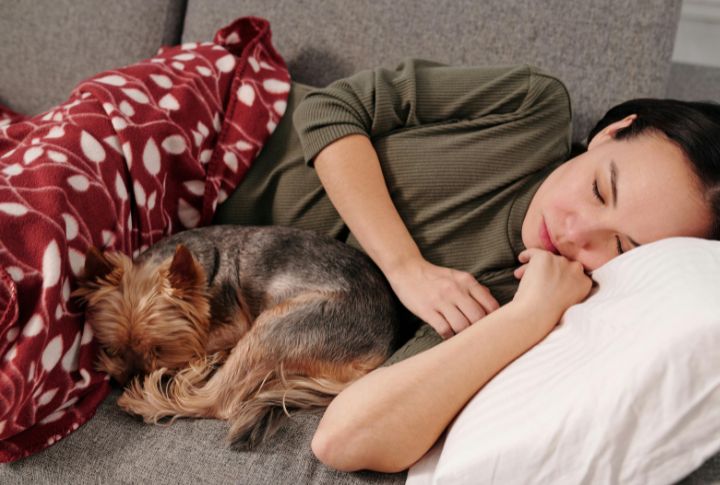
Ensure your pup gets enough undisturbed sleep throughout the day, aiming for 18-20 hours for young puppies. Create a quiet, comfortable sleeping area and encourage regular naps. A well-rested puppy is likelier to behave better and respond positively to training sessions.
Use taste deterrents wisely
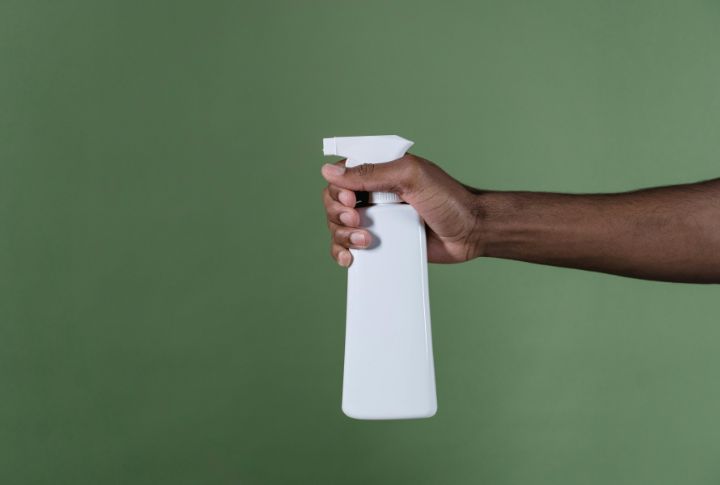
Consider using safe, non-toxic bitter sprays on tempting items for persistent chewers. Test a small area first to ensure it doesn’t damage the item. Apply the deterrent daily for at least two weeks. However, this should be used with positive reinforcement techniques, not as a standalone solution.
Seek professional help if needed
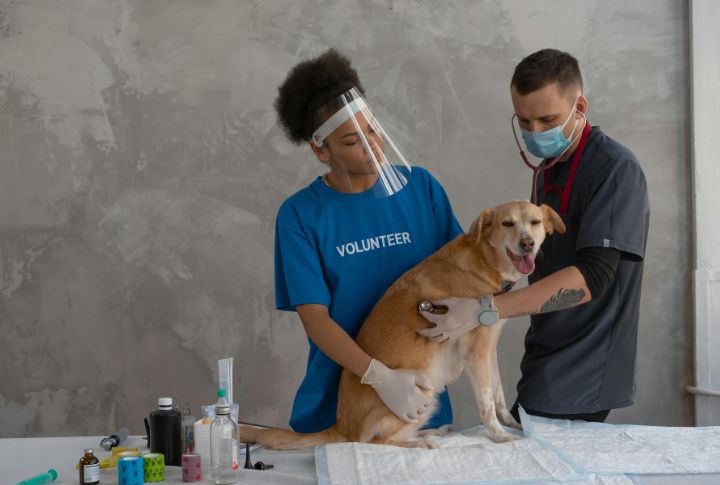
If biting persists despite your best efforts, don’t hesitate to consult a professional. They assess any underlying issues and even offer personalized training plans. A certified behavior consultant, applied animal behaviorist, or veterinary behaviorist can provide tailored strategies for your pup’s specific needs.
Sources: https://www.petmd.com/dog/training/puppy-biting





